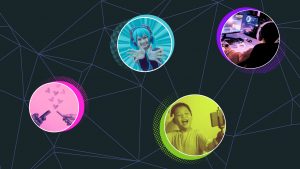-

-
 Research-at-a-Glance
Research-at-a-GlanceLGBTQ+ Youth and Digital Media Use
A quick-read research summary for parents, caregivers, and professionals.
-

-
 Ask the Experts—Webinars
Ask the Experts—WebinarsGrowing Up Online: Understanding Youth Internet Trends, Subcultures, and Relationships
Where and how are children and teens spending their time online, and what is the nature of the cultures and relationships they are forming there? How are these affecting their offline development and sense of self?
-
 Ask the Experts—Shorts
Ask the Experts—ShortsVideo Games, Young Children, and Toxic Online Cultures
From the #AskTheExperts webinar “Growing Up Online: Understanding Youth Internet Trends, Subcultures, and Relationships”
